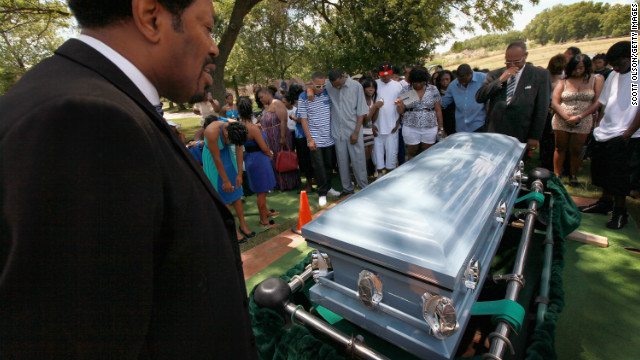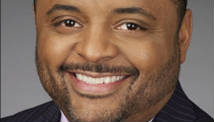 Editor's note: Roland Martin is a syndicated columnist and author of "The First: President Barack Obama's Road to the White House." He is a commentator for the TV One cable network and host/managing editor of its Sunday morning news show, "Washington Watch with Roland Martin."
Editor's note: Roland Martin is a syndicated columnist and author of "The First: President Barack Obama's Road to the White House." He is a commentator for the TV One cable network and host/managing editor of its Sunday morning news show, "Washington Watch with Roland Martin."(CNN) -- At 9:40 a.m. on December 14, America's attention was turned to Newtown, Connecticut, where 20 children and six adults were gunned down in an elementary school. The nation was grief-stricken. President Barack Obama arrived two days later operating as consoler-in-chief, and the dialogue immediately commenced on what steps should be taken to prevent another Newtown.
Shortly after 9 p.m. on December 27, Chicago police found the body of Nathaniel T. Jackson outside a convenience store, marking the 500th homicide of the year in the Windy City, most of them due to gun violence. As far as I know, no pictures of Jackson were shown on national TV. Flowers and teddy bears didn't populate the scene. His death has largely been ignored by the national media, except for the basic acknowledgment that he represented the city's 500th homicide.

Roland Martin
Think about this for a moment. Our world stopped in the wake of the Newtown massacre, and rightfully so. Those killed, including the gunman's mother, were innocent victims, gunned down by a madman. But in Chicago alone, residents have experienced the equivalent of 19 Newtowns this year. And we move about our daily lives as if Jackson's murder doesn't mean a thing.
It is because of this that I've been angered to watch TV, listen to radio and follow these senseless, emotional and one-dimensional debates about gun control in the United States.
Become a fan of CNNOpinion
Stay up to date on the latest opinion, analysis and conversations through social media. Join us atFacebook/CNNOpinion and follow us @CNNOpinion on Twitter. We welcome your ideas and comments.
Newtown and Aurora and Chicago didn't happen just because of guns. There were conditions that preceded these heinous acts that deserve our attention.
Instead, the tragedy has allowed the usual suspects to declaim from one side or the other. It's either pro-Second Amendment or restrict guns. Very little else has broken through to put this gun violence epidemic into the proper context.
Dr. Cornel West and Rush Limbaugh sounded stunningly similar notes by suggesting that because the victims of other gun violence didn't look like the Newtown victims, the national media essentially didn't care. I personally know West has tried to address the issue; nothing tells me Limbaugh really cares other than to score a point against "the liberal media."
That's a reasonable issue to confront and analyze, but it's not the only one.
Mental illness has been discussed, but it has been a distant second to the loud voices championing a ban on assault weapons, background checks or closing gun show loopholes. Very few media sources have done extensive reporting on mental illness budgets in their cities and states.
Yet we can't examine Newtown without dealing with "stand your ground" laws in Florida and other states. We can't say reinstate the assault weapons ban and not talk about whether strict gun control laws actually work. The gun violence issue is multilayered. Access to guns is one thing; what we do with guns is another.
We take solace in the FBI saying overall crime is down, but according to GunPolicy.org, 14,159 people were victims of homicide in 2010.
It is true that most people who possess guns don't go around shooting people. But the thousands of homicides due to guns should be alarming to anyone, even the most ardent Second Amendment advocate.
If we are going to keep saying, "let's have a conversation," then by God let's do it. Right now, we are seeing advocates against guns and for guns try to score points and demonize one another. That's not a conversation. It's an exercise in futility.
Issues such as education, poverty, income disparities, anger, violent video games and images, and many others must be looked at if we want to come to grips with America's deadly infatuation with guns.
Again, not everything is a direct cause. But any psychologist will tell you that a variety of factors lead to someone killing one person or 20.
For my media brothers and sisters, we have done a weak job at making this conversation broad and in-depth. We can't give it short shrift and think that a seven-minute panel will do the trick. We can't put so much attention on Newtown and ignore Chicago. It's not just about what happens in Washington, but also in state houses, commissioners' courts and city halls across the land.
If we continue at this rate, Newtown will be an afterthought, thus becoming another missed opportunity to address a major epidemic in America. LINK


